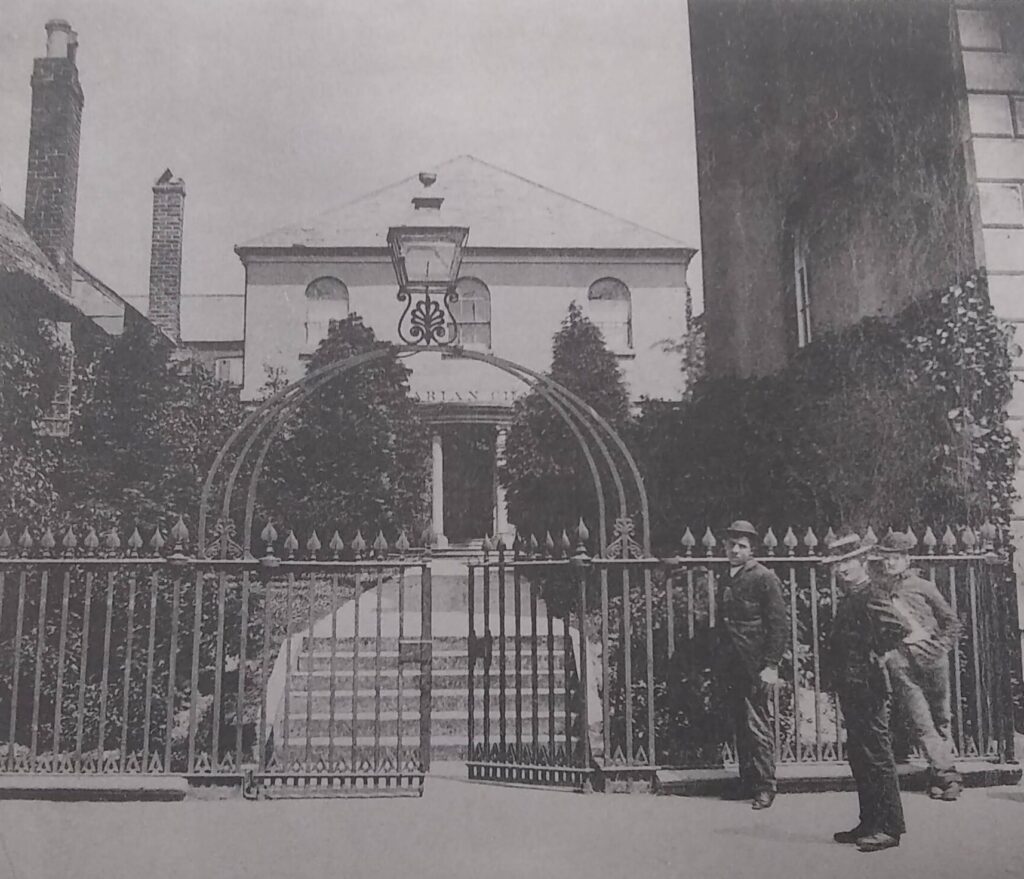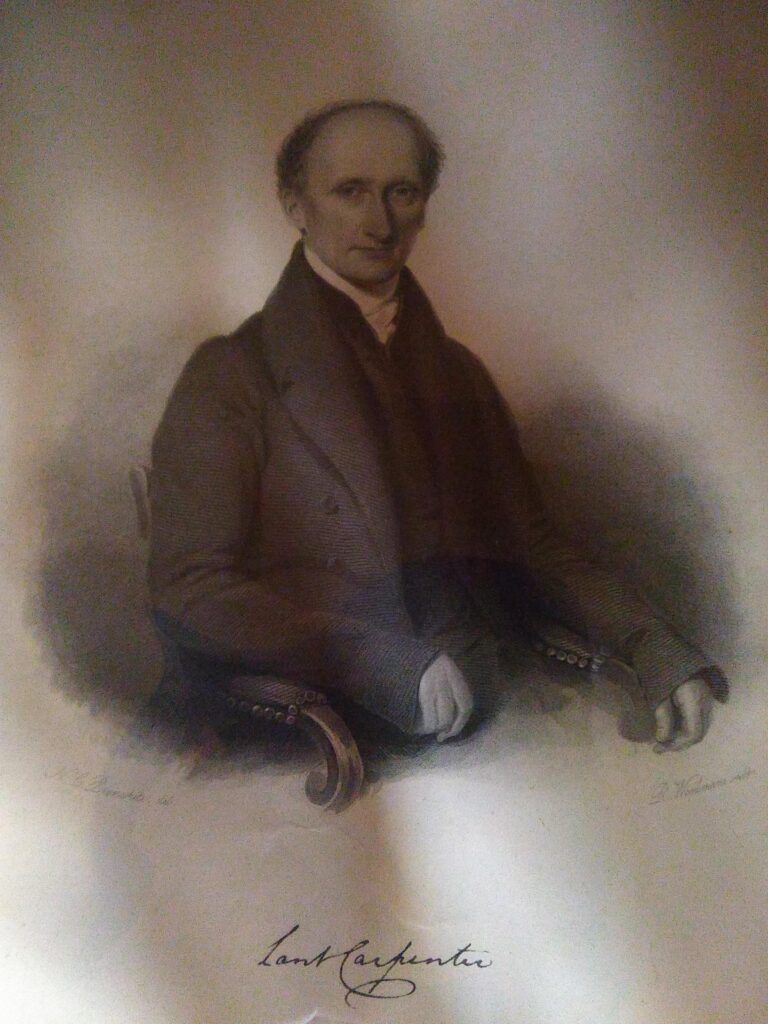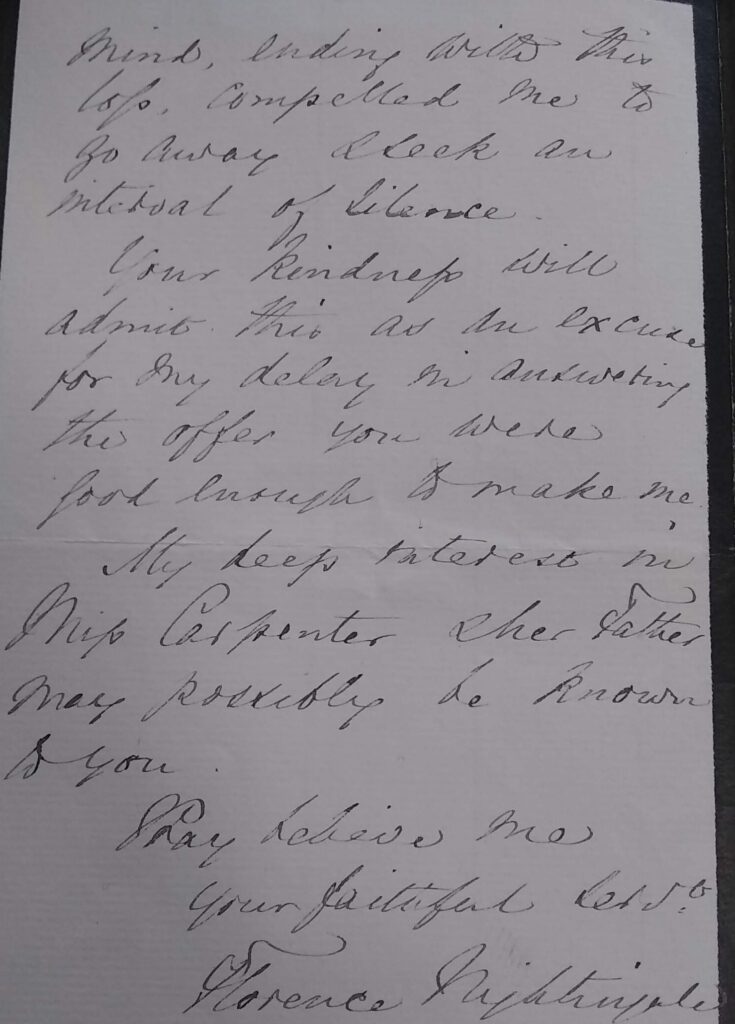Amongst the records of non-conformist churches held by Dorset History Centre you will find a collection of correspondence called the Carpenter Letters. In this collection you will find letters from many of the prominent social reformers, educators and abolitionists from the nineteenth century.

The Reverend Russell Lant Carpenter was the minister of Bridport Unitarian Church from 1865-1887. He was the son of the noted Unitarian Minister and educator Lant Carpenter and most of the letters in the collection were written to members of the Carpenter family.

One of the earliest letters in the collection was written to Lant Carpenter by Harriet Martineau, an author and early socialist. Harriet defied the expectation that women in the nineteenth century should have no higher aspiration than marriage and the raising of children and supported herself with her writing. One of her earliest works was ‘Devotional Exercises’ and in a letter dated October 31st 1823 she asks Lant Carpenter for his opinion on her writing. She had met Lant during the years that she spent with her aunt in Bristol, where he was a minister and ran a school. She writes:
‘I have not yet been able to obtain the opinion of any on whose judgement I can rely, respecting my works, except my brother James, and I therefore anticipate with some degree of dread your judgement upon it. If, after reading it, you are able to say that you think it will be useful, I shall be perfectly satisfied. I will also venture to say, that if, some time or other you will point out to me what defects are observable in it I shall consider it an addition to the great kindness you have already shown me.’
Harriet appears nervous about the reception her book will get, with almost two thirds of the letter being devoted to an explanation as to how she came to have written it, when Mr Wellbeloved was producing a similar text. Despite her worries she became a very successful author, writing stories that were designed to illustrate political ideas.
The Carpenter family had strong connection with the abolitionist movement. Rev Russell Carpenter travelled to America in 1859 and Maria Weston Chapman wrote to welcome him to her country.
Welcome to American soil, alas not free soil! – welcome as friend that comes to help us make it so!
Maria organised the annual anti-slavery fundraising event in Boston, as well as writing articles on the subject. The letter to Carpenter is written on an invitation to the 25th national anti-slavery subscription anniversary and she also urges him to visit other abolitionists.
Theodore Parker is another American campaigner who wrote to Rev Carpenter. The letter that appears in this collection is from 1859 and was written during a visit to England. He apologises that he would not be able to visit Carpenter on this trip but hopes to return in May 1860. Unfortunately, this never happened. Parker had journeyed to Europe in the hope of improving his health, but he died of tuberculosis in Florence in 1860.
Several letters are written to thank Carpenter for sending them copy of a memoir of his brother, Philip Pearsall Carpenter. These include letters from the Scottish novelist George MacDonald and Florence Nightingale.

Florence Nightingale’s letter suggests that Russell Carpenter had sent her the book as he thought she may be interested in his work on sanitation reforms, but she writes that she found much of interest in the book, including Philip Pearsall’s work with shells. She also explains why there was a delay in her conveying her thanks.
‘Your letter reached me on the morning of my dearest mother’s blessed going home. And 6 years and more without one day’s rest of body or mind, ending with this loss, compelled me to go away and seek an interval of silence.’
Two other letters concern sending copies of this memoir to India and Florence also requests that copies of the life of Russell’s sister Mary also be sent.
Mary Carpenter was a social campaigner and educator who founded Ragged schools in Bristol and travelled to India to promote the education of women. The Dorset History Centre holds letters from Mary Carpenter in the collection of the Colfox Family.
These letters are a fascinating collection and give an insight into the work of the men and women trying to change the world in the 19th century.


Thank you
That was really interesting
I took my class to the Ragged School in Whitechapel years ago
It was on a day when a non English speaking child started school
I so empathised when the actress came into the classroom and singled him out!!
It was out of most of the class’s comfort zone
17 different languages spoken at home by my lovely children
I met Sylvia Collicot when teaching in Harringay She was inspirational and has written about social history